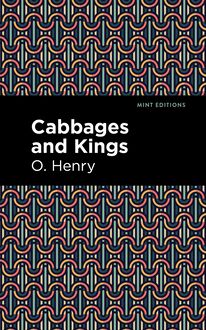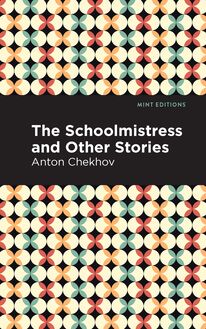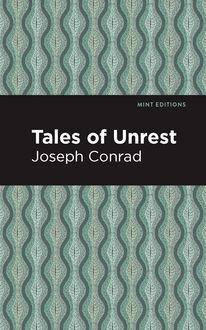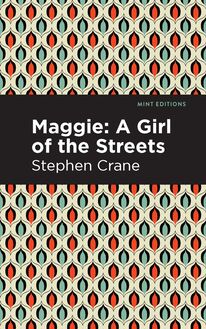-
 Univers
Univers
-
 Ebooks
Ebooks
-
 Livres audio
Livres audio
-
 Presse
Presse
-
 Podcasts
Podcasts
-
 BD
BD
-
 Documents
Documents
-
- Cours
- Révisions
- Ressources pédagogiques
- Sciences de l’éducation
- Manuels scolaires
- Langues
- Travaux de classe
- Annales de BEP
- Etudes supérieures
- Maternelle et primaire
- Fiches de lecture
- Orientation scolaire
- Méthodologie
- Corrigés de devoir
- Annales d’examens et concours
- Annales du bac
- Annales du brevet
- Rapports de stage
La lecture à portée de main

Vous pourrez modifier la taille du texte de cet ouvrage
Découvre YouScribe en t'inscrivant gratuitement
Je m'inscrisDécouvre YouScribe en t'inscrivant gratuitement
Je m'inscrisEn savoir plus
Vous pourrez modifier la taille du texte de cet ouvrage
En savoir plus

Description
Jerome K. Jerome’s Sketches of Lavender, Blue and Green is a vast collection of short fiction, diverse in themes and topics. Each infused with Jerome’s clever wit, this collection of short fiction caters to every mood. In The Materialism of Charles and Mivanway, a paranormal misunderstanding brings a couple closer together. After a young, emotionally charged couple are separated by a ship wreck, each are presumed dead. Because of this, when they run into each other at a romantic spot, the couple each think the other is a ghost. Filled with grief, they work out their differences and reconcile old fights as they schedule meetings; they may think their lover is dead, but that does not mean their love is. Depicting a different perspective of love, Blasé Billy portrays a worldly, experienced man who is unimpressed with nearly everything, as he has lived through so much. However, when Billy starts to fall in love, he realizes that he may not be as accomplished as he thought. Accompanying touching love stories, The Man Who Lived for Others is a satirical tale of warning as it follows a man who will go out of his way to do exactly what others expect at the expense of his own happiness.
Featuring twenty exemplary works of short fiction, Sketches of Lavender, Blue and Green by Jerome K. Jerome explores themes of love, gender, class, marriage, and societal expectations with wit and charm. This range of topics and themes are well-presented in pure satirical pieces, stories of romance, and even stories with supernatural misunderstandings. Filled with humor, sentiment, and reflection, Sketches of Lavender, Blue, and Green is a perfect collection of hilarious narratives, sure to delight modern-audiences.
This edition of Sketches in Lavender, Blue, and Green by Jerome K. Jerome is presented in an easy-to-read font and features an eye-catching new cover design. With these accommodations, this edition is accessible and appealing to contemporary audiences, restoring Jerome K Jerome’s work to modern standards while preserving the original wit and charm of Sketches in Lavender, Blue and Green.
Sujets
Informations
| Publié par | Mint Editions |
| Date de parution | 09 mars 2021 |
| Nombre de lectures | 0 |
| EAN13 | 9781513279008 |
| Langue | English |
| Poids de l'ouvrage | 3 Mo |
Informations légales : prix de location à la page 0,0450€. Cette information est donnée uniquement à titre indicatif conformément à la législation en vigueur.
Extrait
Sketches in Lavender, Blue and Green
Jerome K. Jerome
Sketches in Lavender, Blue and Green was first published in 1895.
This edition published by Mint Editions 2021.
ISBN 9781513278544 | E-ISBN 9781513279008
Published by Mint Editions®
minteditionbooks .com
Publishing Director: Jennifer Newens
Design & Production: Rachel Lopez Metzger
Project Manager: Micaela Clark
Typesetting: Westchester Publishing Services
La-ven-der’s blue, did-dle, did-dle!
La-ven-der’s green;
When I am king, did-dle, did-dle!
You shall be queen.
Call up your men, did-dle, did-dle!
Set them to work;
Some to the plough, did-dle, did-dle!
Some to the cart.
Some to make hay, did-dle, did-dle!
Some to cut corn;
While you and I, did-dle, did-dle!
Keep ourselves warm.
C ONTENTS R EGINALD B LAKE , F INANCIER AND C AD A N I TEM OF F ASHIONABLE I NTELLIGENCE B LASE B ILLY T HE C HOICE OF C YRIL H ARJOHN T HE M ATERIALISATION OF C HARLES AND M IVANWAY P ORTRAIT OF A L ADY T HE M AN W HO W OULD M ANAGE T HE M AN W HO L IVED F OR O THERS A M AN OF H ABIT T HE A BSENT - MINDED M AN A C HARMING W OMAN W HIBLEY’S S PIRIT T HE M AN W HO W ENT W RONG T HE H OBBY R IDER T HE M AN W HO D ID N OT B ELIEVE IN L UCK D ICK D UNKERMAN’S C AT T HE M INOR P OET’S S TORY T HE D EGENERATION OF T HOMAS H ENRY T HE C ITY OF THE S EA D RIFTWOOD
R EGINALD B LAKE , F INANCIER AND C AD
The advantage of literature over life is that its characters are clearly defined, and act consistently. Nature, always inartistic, takes pleasure in creating the impossible. Reginald Blake was as typical a specimen of the well-bred cad as one could hope to find between Piccadilly Circus and Hyde Park Corner. Vicious without passion, and possessing brain without mind, existence presented to him no difficulties, while his pleasures brought him no pains. His morality was bounded by the doctor on the one side, and the magistrate on the other. Careful never to outrage the decrees of either, he was at forty-five still healthy, though stout; and had achieved the not too easy task of amassing a fortune while avoiding all risk of Holloway. He and his wife, Edith ( nee Eppington), were as ill-matched a couple as could be conceived by any dramatist seeking material for a problem play. As they stood before the altar on their wedding morn, they might have been taken as symbolising satyr and saint. More than twenty years his junior, beautiful with the beauty of a Raphael’s Madonna, his every touch of her seemed a sacrilege. Yet once in his life Mr. Blake played the part of a great gentleman; Mrs. Blake, on the same occasion, contenting herself with a singularly mean role —mean even for a woman in love.
The affair, of course, had been a marriage of convenience. Blake, to do him justice, had made no pretence to anything beyond admiration and regard. Few things grow monotonous sooner than irregularity. He would tickle his jaded palate with respectability, and try for a change the companionship of a good woman. The girl’s face drew him, as the moonlight holds a man who, bored by the noise, turns from a heated room to press his forehead to the window-pane. Accustomed to bid for what he wanted, he offered his price. The Eppington family was poor and numerous. The girl, bred up to the false notions of duty inculcated by a narrow conventionality, and, feminine like, half in love with martyrdom for its own sake, let her father bargain for a higher price, and then sold herself.
To a drama of this description, a lover is necessary, if the complications are to be of interest to the outside world. Harry Sennett, a pleasant-looking enough young fellow, in spite of his receding chin, was possessed, perhaps, of more good intention than sense. Under the influence of Edith’s stronger character he was soon persuaded to acquiesce meekly in the proposed arrangement. Both succeeded in convincing themselves that they were acting nobly. The tone of the farewell interview, arranged for the eve of the wedding, would have been fit and proper to the occasion had Edith been a modern Joan of Arc about to sacrifice her own happiness on the altar of a great cause; as the girl was merely selling herself into ease and luxury, for no higher motive than the desire to enable a certain number of more or less worthy relatives to continue living beyond their legitimate means, the sentiment was perhaps exaggerated. Many tears were shed, and many everlasting good-byes spoken, though, seeing that Edith’s new home would be only a few streets off, and that of necessity their social set would continue to be the same, more experienced persons might have counselled hope. Three months after the marriage they found themselves side by side at the same dinner-table; and after a little melodramatic fencing with what they were pleased to regard as fate, they accommodated themselves to the customary positions.
Blake was quite aware that Sennett had been Edith’s lover. So had half a dozen other men, some younger, some older than himself. He felt no more embarrassment at meeting them than, standing on the pavement outside the Stock Exchange, he would have experienced greeting his brother jobbers after a settling day that had transferred a fortune from their hands into his. Sennett, in particular, he liked and encouraged. Our whole social system, always a mystery to the philosopher, owes its existence to the fact that few men and women possess sufficient intelligence to be interesting to themselves. Blake liked company, but not much company liked Blake. Young Sennett, however, could always be relied upon to break the tediousness of the domestic dialogue. A common love of sport drew the two men together. Most of us improve upon closer knowledge, and so they came to find good in one another.
“That is the man you ought to have married,” said Blake one night to his wife, half laughingly, half seriously, as they sat alone, listening to Sennett’s departing footsteps echoing upon the deserted pavement. “He’s a good fellow—not a mere money-grubbing machine like me.”
And a week later Sennett, sitting alone with Edith, suddenly broke out with:
“He’s a better man than I am, with all my high-falutin’ talk, and, upon my soul, he loves you. Shall I go abroad?”
“If you like,” was the answer.
“What would you do?”
“Kill myself,” replied the other, with a laugh, “or run away with the first man that asked me.”
So Sennett stayed on.
Blake himself had made the path easy to them. There was little need for either fear or caution. Indeed, their safest course lay in recklessness, and they took it. To Sennett the house was always open. It was Blake himself who, when unable to accompany his wife, would suggest Sennett as a substitute. Club friends shrugged their shoulders. Was the man completely under his wife’s thumb; or, tired of her, was he playing some devil’s game of his own? To most of his acquaintances the latter explanation seemed the more plausible.
The gossip, in due course, reached the parental home. Mrs. Eppington shook the vials of her wrath over the head of her son-in-law. The father, always a cautious man, felt inclined to blame his child for her want of prudence.
“She’ll ruin everything,” he said. “Why the devil can’t she be careful?”
“I believe the man is deliberately plotting to get rid of her,” said Mrs. Eppington. “I shall tell him plainly what I think.”
“You’re a fool, Hannah,” replied her husband, allowing himself the licence of the domestic hearth. “If you are right, you will only precipitate matters; if you are wrong, you will tell him what there is no need for him to know. Leave the matter to me. I can sound him without giving anything away, and meanwhile you talk to Edith.”
So matters were arranged, but the interview between mother and daughter hardly improved the position. Mrs. Eppington was conventionally moral; Edith had been thinking for herself, and thinking in a bad atmosphere. Mrs. Eppington, grew angry at the girl’s callousness.
“Have you no sense of shame?” she cried.
“I had once,” was Edith’s reply, “before I came to live here. Do you know what this house is for me, with its gilded mirrors, its couches, its soft carpets? Do you know what I am, and have been for two years?”
The elder woman rose, with a frightened pleading look upon her face, and the other stopped and turned away towards the window.
“We all thought it for the best,” continued Mrs. Eppington meekly.
The girl spoke wearily without looking round.
“Oh! every silly thing that was ever done, was done for the best. I thought it would be for the best, myself. Everything would be so simple if only we were not alive. Don’t let’s talk any more. All you can say is quite right.”
The silence continued for a while, the Dresden-china clock on the mantelpiece ticking louder and louder as if to say, “I, Time, am here. Do not make your plans forgetting me, little mortals; I change your thoughts and wills. You are but my puppets.”
“Then what do you intend to do?” demanded Mrs. Eppington at length.
“Intend! Oh, the right thing of course. We all intend that. I shall send Harry away with a few well-chosen words of farewell, learn to love my husband and settle down to a life of quiet domestic bliss. Oh, it’s easy enough to intend!”
The girl’s face wrinkled with a laugh that aged her. In that moment it was a hard, evil face, and with a pang the elder woman thought of that other face, so like, yet so unlike—the sweet pure face of a girl that had given to a sordid home its one touch of nobility. As under the lightning’s flash we see the whole arc of the horizon, so Mrs. Eppington looked and saw her child’s life. The gilded, over-furnished room vanished. She and a big-eyed, fair-haired child, the only one of her children she had ever understood, were playing wonderful games in the twilight among the shadows of a tiny attic. Now she was the wolf, devouring Edith, who was Red Riding Hood, with kisses. Now Cinderella’s prince, now
Attention
En entrant sur cette page, vous certifiez :
- 1. avoir atteint l'âge légal de majorité de votre pays de résidence.
- 2. avoir pris connaissance du caractère érotique de ce document.
- 3. vous engager à ne pas diffuser le contenu de ce document.
- 4. consulter ce document à titre purement personnel en n'impliquant aucune société ou organisme d'État.
- 5. vous engager à mettre en oeuvre tous les moyens existants à ce jour pour empêcher n'importe quel mineur d'accéder à ce document.
- 6. déclarer n'être choqué(e) par aucun type de sexualité.
YouScribe ne pourra pas être tenu responsable en cas de non-respect des points précédemment énumérés. Bonne lecture !
-
 Univers
Univers
-
 Ebooks
Ebooks
-
 Livres audio
Livres audio
-
 Presse
Presse
-
 Podcasts
Podcasts
-
 BD
BD
-
 Documents
Documents
-
Jeunesse
-
Littérature
-
Ressources professionnelles
-
Santé et bien-être
-
Savoirs
-
Education
-
Loisirs et hobbies
-
Art, musique et cinéma
-
Actualité et débat de société
-
Jeunesse
-
Littérature
-
Ressources professionnelles
-
Santé et bien-être
-
Savoirs
-
Education
-
Loisirs et hobbies
-
Art, musique et cinéma
-
Actualité et débat de société
-
Actualités
-
Lifestyle
-
Presse jeunesse
-
Presse professionnelle
-
Pratique
-
Presse sportive
-
Presse internationale
-
Culture & Médias
-
Action et Aventures
-
Science-fiction et Fantasy
-
Société
-
Jeunesse
-
Littérature
-
Ressources professionnelles
-
Santé et bien-être
-
Savoirs
-
Education
-
Loisirs et hobbies
-
Art, musique et cinéma
-
Actualité et débat de société
- Cours
- Révisions
- Ressources pédagogiques
- Sciences de l’éducation
- Manuels scolaires
- Langues
- Travaux de classe
- Annales de BEP
- Etudes supérieures
- Maternelle et primaire
- Fiches de lecture
- Orientation scolaire
- Méthodologie
- Corrigés de devoir
- Annales d’examens et concours
- Annales du bac
- Annales du brevet
- Rapports de stage




















